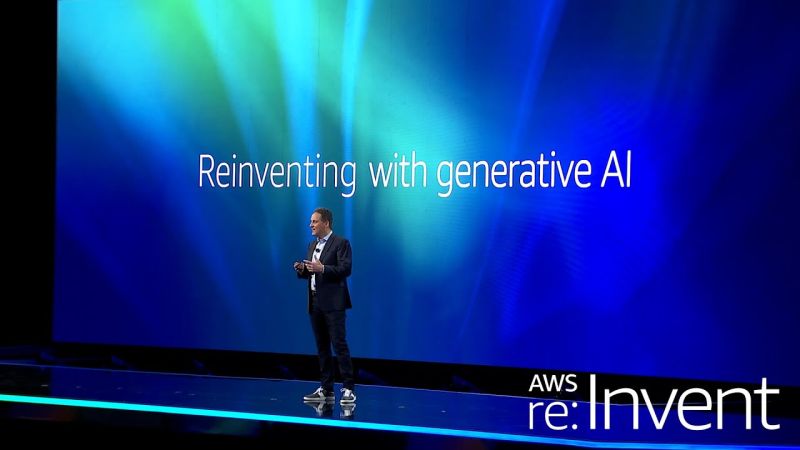Amazon Web Services (AWS) is reshaping the narrative of AI by carving out a future where cloud computing and AI are not just aligned—they’re inseparable.
At re:Invent 2023, the stage was set in Vegas, and AWS didn’t just play its cards right; it changed the game in terms of how Cloud and AI plays together.
Let’s unpack key announcements to understand AWS’ strategy vectors:
+ AI-Powered Cloud: Adam Selipsky highlighted AI as the core driver for AWS’s cloud services innovations, propelling services towards more intuitive, intelligent cloud operations for customers.
+ Amazon Neptune Analytics: A new hybrid database merging graph and vector search capabilities, designed to extract complex insights from intricate data webs, catalyzing a revolution in data-driven decision-making.
+ AWS Clean Rooms ML: A pioneering service focusing on privacy-preserved AI model training, enabling businesses to collaborate without compromising sensitive data—a move towards a more secure, trust-centric AI landscape.
+ SageMaker HyperPod: A robust service engineered to accelerate the training of sophisticated language models, giving developers the high-speed tools they need to fine-tune AI with precision and scale.
+ AWS Titan Image Generator: Entering the generative AI arena, this tool showcases AWS’s commitment to expanding the creative horizons of AI, allowing users to generate bespoke visual content on demand.
+ Amazon Q: Unveiling a chatbot infused with a deep well of AWS knowledge, set to redefine user assistance with expansive AI-driven insights and solutions tailored to complex cloud ecosystems.
+ AWS Trainium chips: AWS continues to push into custom AI hardware, delivering AI model training and inferencing with efficiency, marking a significant milestone in AWS’ AI hardware optimization journey.
+ S3 Express One Zone: Alongside AI, AWS re:Invent also introduced Amazon S3 Express One Zone, tailored for high-performance applications, setting the stage for an infrastructure capable of sustaining the immense demands of AI and ML workloads.
+ AWS One Enterprise: AWS demonstrated a new palm-scanning identity service that allows companies to authenticate people when entering physical premises.
+ AWS Thin Client Services: Built on their Fire cube architecture, Amazon launched new $195 devices that allow enterprise users to access virtual desktop environments, like Amazon WorkSpaces, over the internet.
AWS re:Invent 2023 was a showcase of Amazon’s AI ambitions, from tools that simplify complex data analysis to chips that power the next generation of AI applications.
It’s a clear message: AWS is not just participating in the AI revolution; it’s leading it.
What are your thoughts from AWS’ re:Invent?
#awsreinvent2023 #awsreinvent #generatieveai #aiapplications #aicloud

